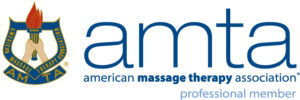Massage and Stress
Stress is a natural response of the body to the various demands we place upon it. In ancient times, our stress response, also known as our flight or flight response, provided us with energy to preserve life during difficult situations such as an attack or threat by a wild animal. Unfortunately, modern day stress is considerably higher, more frequent and more consistent than what our predecessors experienced. Today, we do not have to look much further than out our windows, or on our computer screens, to view various forms of stressors—everything from prime-time news and road rage, to the forty-hour work week, and cell phones.
However stress is not necessarily always negative. There is a distinction between healthy and unhealthy stress. Healthy stressors are usually short lived and keep us alert and motivated, and support our body’s strength and vitality. Our response to stress can either help or hinder our body’s ability to cope with these various stressors in our lives. Healthy responses to stress include appropriate physical exercise, good eating habits, positive thinking, adequate rest, and reaching out to friends and family for support. Unhealthy responses to stress include negative thinking, overexertion, poor eating habits, lack of sleep, and isolation. These unhealthy responses can cause the body to work harder than it needs to and can trigger physical and mental health issues. Over time, ongoing stress and unhealthy responses to stress can actually be detrimental to our health.
Medical studies have shown that with increased and consistent stress, our white blood cells, which defend our body against viruses, decrease. This results in lower immune resistance, ultimately leading to physical disease and emotional instability.
Even if the stressors are no longer present, the body continues to keep the stress response active. This results in the depletion of our nervous system, lymphatic organs (spleen, thymus, and lymph nodes), kidneys and adrenal glands, which can pave the way for a wide variety of signs and symptoms.
Signs and Symptoms of an overactive response to stress:
- Anger
- Anxiety
- Asthma
- Depression
- Depressed Immune System
- Digestive Disorders
- Headaches
- Heart Disease
- High Blood Pressure
- Joint Pain
- Weight Problems
Did you know massage can help to manage stress?
Studies conducted on animals show that a sluggish stress response is directly correlated to lack of touch. Healthy, nurturing touch such as massage can bolster the body’s ability to respond appropriately to stressors. Therefore, a regular dose of massage may be vital for balancing our natural ability to respond to stress in a healthy way.
Human touch is an essential part of human nature. In today’s fast-paced lifestyle, we tend to become so busy that we neglect our natural instincts and deny ourselves of basic human need.
What can you do?
In addition to massage, there are many things that a person can do to combat negative effects of stress:
- Get adequate sleep. Try for at least eight hours of restful and restorative sleep.
- Practice meditative exercise. Qi Gong, Tai Chi, and Yoga can help create a healthy body-mind awareness and help free your mind of stressful thoughts.
- Eat a well balanced diet. Maintain a healthy diet with adequate amounts of complex carbohydrates, vegetables, fruits, protein and healthy fats.
- Have fun! Make time for relaxing activities, enjoyable hobbies and lots of laughter in your life.
- Breathe. Relaxed, deep breathing is one of the most simple and easy techniques that can be used for reducing stress.
- Give yourself a regular foot massage at least three times per week to boost your energy and lower your perception of stress.
If you or a loved one are feeling overwhelmed by the negative effects of stress in your life, try some of these self-care techniques and be sure to schedule a regular massage.
References
J Korean Acad Nurs. Effects of aroma self-foot reflexology massage on stress and immune responses and fatigue in middle-aged women in rural areas2012 Oct;42(5):709-18. doi: 10.4040/jkan.2012.42.5.709.
